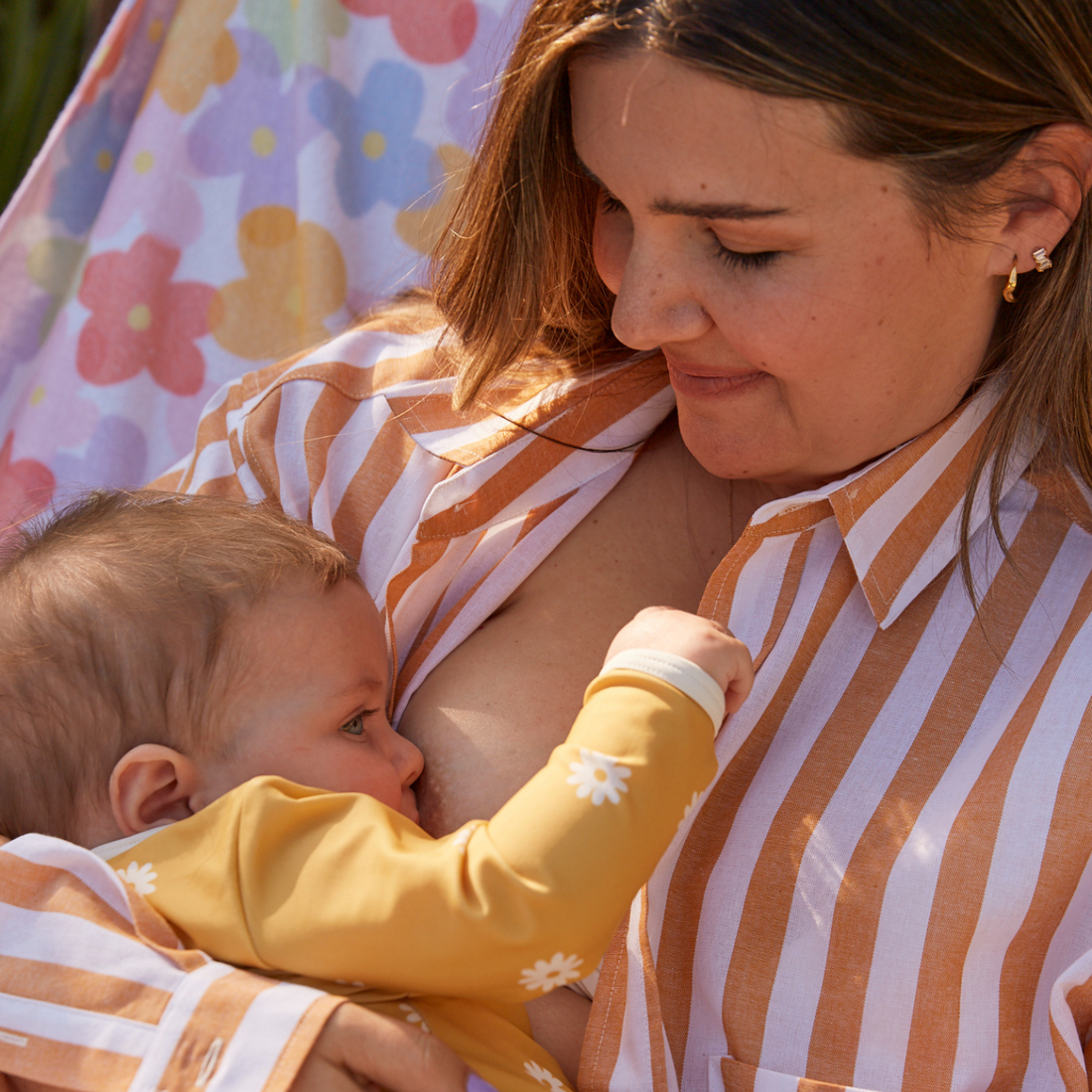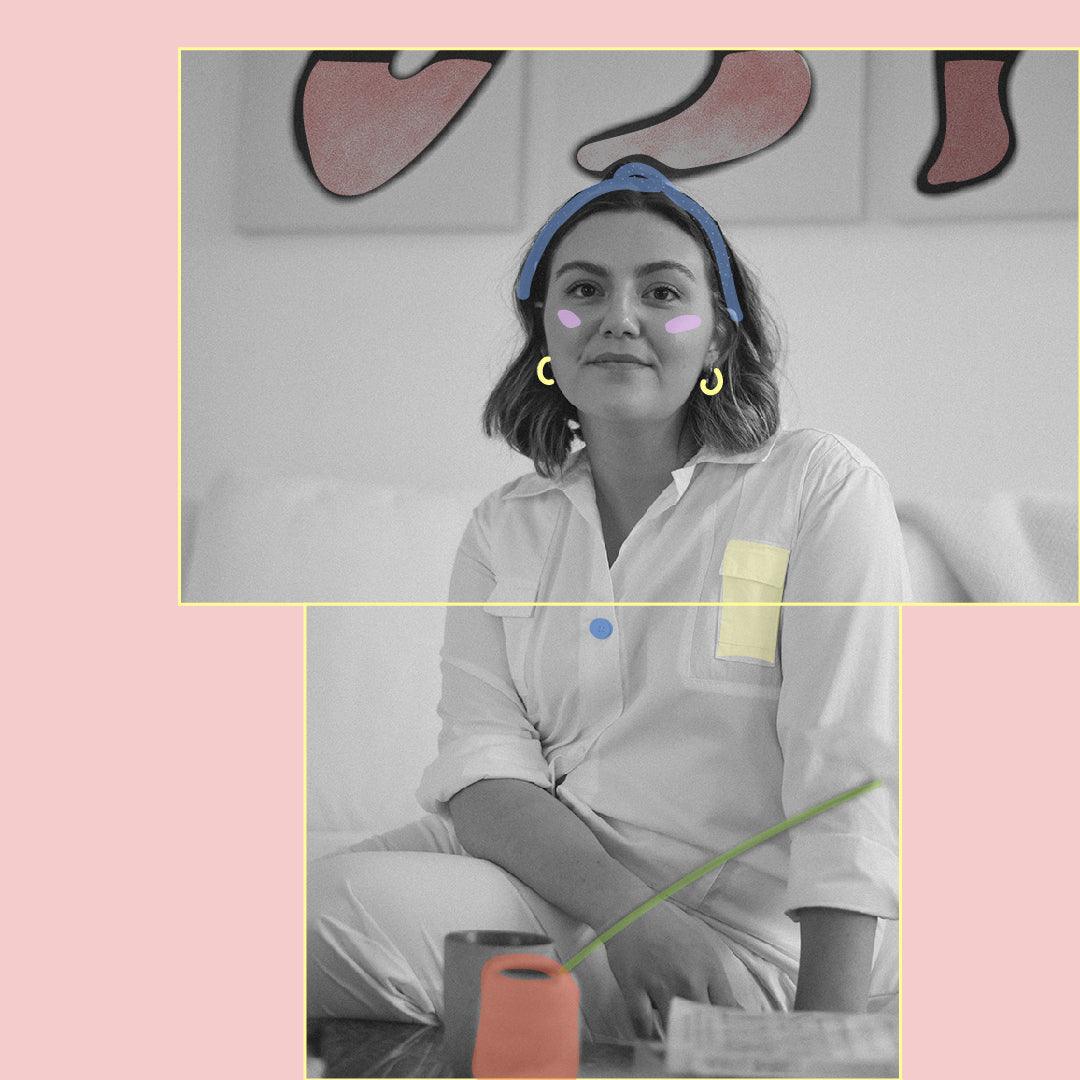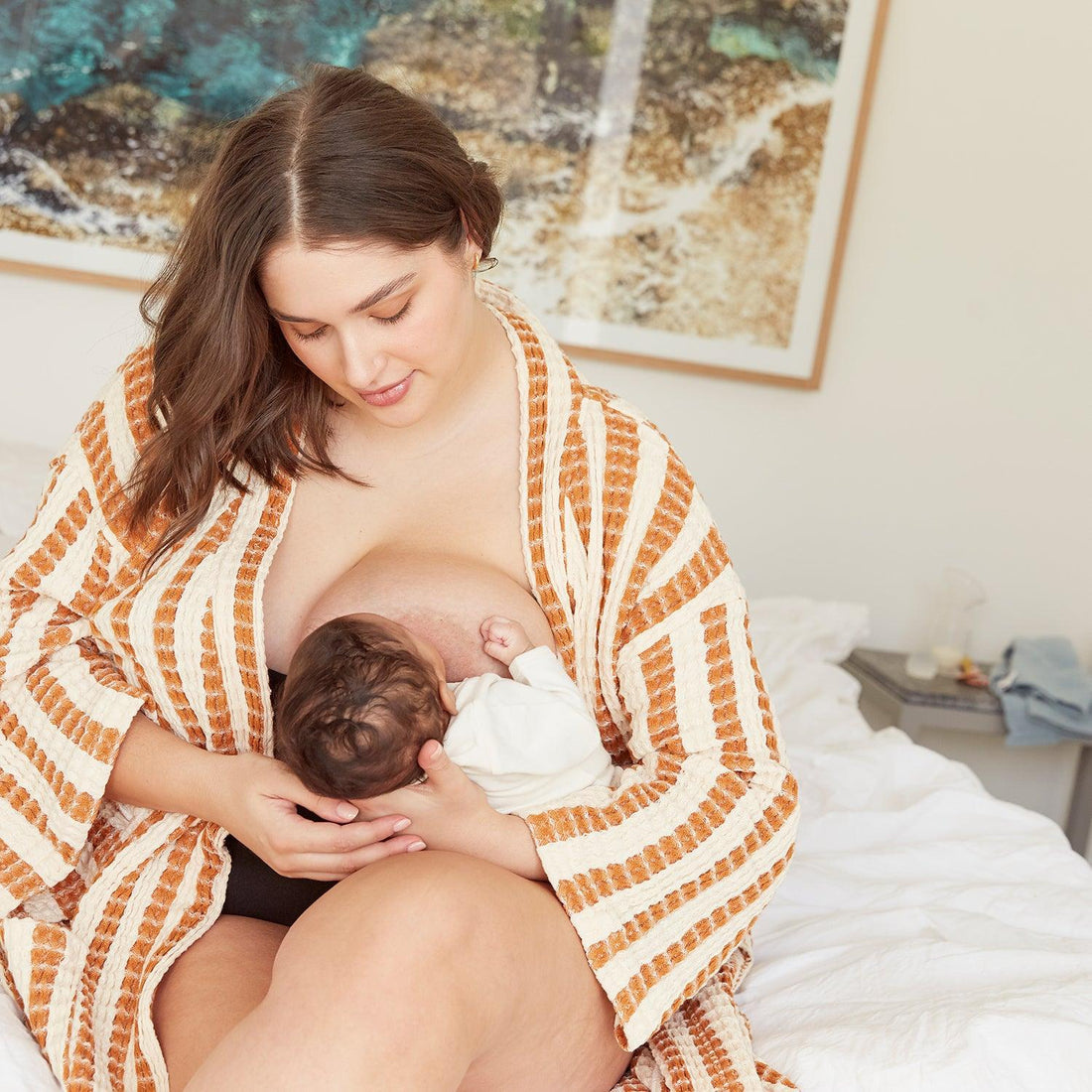Our editor’s story of the pressures, punishments and pleasures of breastfeeding.
This article was written and originally published in August 2022.
My son August arrived by emergency caesarean after induction led to a cascade of intervention. As a final bit of medical mishap, I had a reaction to the epidural while in surgery. It climbed up to my throat, leaving me to feel like I couldn’t breathe. I was given oxygen, and once my son was pulled up and into my eye line, the anaesthetist said, “There’s your baby. Can you see your baby?” I nodded hard, gasping into the mask. Then he said, “OK, now I’m going to let you rest,” and I was knocked out.
Two hours later, my rattled husband, Christian, passed me our perfect newborn and with some prompting from a nurse, I brought him to my boob and he started to suck. I was relieved that after a messy labour and birth, something seemed to be a little bit more as per instructions.
The next few days in hospital were hazy. Drugs, joy, tiny amounts of sleep and the slow extraction of medical equipment from my body. Some colostrum was harvested, and August kept sucking, and I replied, ‘well’ when the rotation of midwives asked how feeding was going. But I didn’t know what I was talking about, and no one else really checked.
On our last night in hospital, my baby couldn’t relax. I’d bring him to me to feed, he’d suck vigorously, then he’d fall asleep only to wake up a few minutes later. A midwife came and told me he was fussy, then asked if I’d brought a dummy.
At discharge August’s weight had dropped 336 grams. More than they’d like, but not enough for it to be a problem. The next day, however, it was a different story. At my first home visit, less than 24 hours since we’d left the hospital, the midwife was worried. August’s weight had dropped another 164 grams, 13 percent since birth, and he hadn’t progressed to the yellow, milk poos. She was also concerned that my nipples were so battered. I’d had friends tell me, chaffed, bleeding nipples were normal, so I was going with it. She told me she didn’t think my milk had come in, but didn’t give me much information on what that meant. She advised an electric pump, ASAP, formula and an intense schedule of feeding and pumping which we had to record on a timesheet. Tired, fragile and scared, my husband and I felt immense failure. One day in and we were already falling short as parents. But we were determined to do as we were told and get our boy fed.
We didn’t have the money to spend on an electric pump, so Christian returned from this emergency shop with a hand pump, nipple shields and formula. The schedule involved breastfeeding him on each boob, then giving him a bottle of formula or expressed milk, and then pumping. At first the whole process took almost two hours, and we were doing it every three hours. So there wasn’t a lot of time to do anything else, like sleep, or eat.
My own mum had gone back to NSW the evening before. She had flown to us in Melbourne when my labour became complicated, but wanted to respect my (ignorant) wishes to have just Christian, myself and the baby at home alone for the first few weeks. In floods of tears, I called and asked her to come back. Christian and I were focused on taking care of August, but we needed someone to take care of us, which she did.
The first few entries on the schedule records, 20 minutes on each breast, 30mls of formula, 5-10mls expressed. Green poos and a wakeful baby. Lots of scribbles and mistakes. The time I spent trying to breastfeed drops to 10, and then five minutes, with a note at 1am “struggled to latch”. Another at 3:45am shows him going straight to the expressed milk, and then formula. I remember that time as the hardest of my life. August was sleeping much more, and I was relieved that the formula and expressed milk was keeping him full, but with fluctuating hormones, great expectations gone unmet and the realisation that our hard labour was not going to have the payoff that breast feeding would be easy, I felt manic and so disappointed.
The next time I woke up, things were different. With a new dawn, my boobs had become engorged, hard and ready to burst. I remember pulling off my wet pyjama top and spraying the mirror. My milk had come in.
From then, the timesheet denotes successful feeds (though August had some trouble latching to the new, faster milk), expressions of 60-70mls and a transition to mustard-coloured milk poos. It was clear he was feeling much fuller, but we’d been instructed to keep up the schedule for 48 hours, so we were still giving him bottles of expressed milk after his breast feed, we no longer needed formula - the fridge was filling up with pastel yellow bottles. The kid was so stuffed, all he could do was sleep, but we kept waking him to feed as prescribed.
"Breastfeeding was the life experience that’s most made me feel that I truly was enough."
I started using the Haakaa Silicone Breast Pump to catch all the excess milk, and was getting 50mls a side. The next morning, the nurse (a different nurse) arrived for the follow up visit and let out a cry of joy seeing the cup so full. When she lifted our comatose baby to the scales, Chris and I held our breath. We knew just from being with him that he’d regained some of the weight he’d lost, but we felt our fate was with this outcome. He’d gained 280g in 48hours. A tenth of his body weight. “That’s like me putting on 9kgs in a weekend,” exclaimed my husband. The nurse, Debbie, looked at our weary faces, put her hands on our shoulders and said, “It’s OK, you did good. You can relax now.” No more recording feeds, or keeping to a schedule, or expressing if we didn’t want to, just feed on demand. She noticed the nipple shields and said it was fine to use them, but to keep trying without them so I didn’t become “reliant”, and she also worried that I might have gone too far the other way, and encouraged an oversupply (there’s always something).
Now, August is three, we’ve had fevers, hospital visits, sleep regressions, a long stretch of time without Chris, but those 48 hours when we tried to establish feeding were the hardest. The silver lining is that it was a crash course into some hard parenting truths. Firstly, nothing lasts forever. I went to sleep not having enough milk to breastfeed my child, and woke with too much. Secondly, ask for help when you need it. It’s the smartest thing you can do as a new parent. Thirdly, and this was a big one, be kind to yourself. Give yourself time. If I had been helped to understand “milk coming in”, I would have still brought him to me to feed, but then given him formula, so that he was full, and my body could rest. The stress and anguish over trying to express the tiny amounts of milk was detrimental to my mind and body, and it was only hours later that I was ready to feed triplets! As a mum, for me at least, doing what feels right, has often been right. I used nipple shields (unashamedly) until August was about four months. At that point I found I just no longer needed them. The pain was gone, my nipples had adapted, and Augie really knew how to suck. I kept using the Haakaa cup so there was always milk in the fridge, and he kept up a daily bottle feed. This meant his dad could take the early morning shift and I could sleep in. When he was older, it meant I could leave him and know that his nourishment could be met without my presence. It gave me a sense of freedom knowing that I wasn’t required at every feed.
When he was about 14 months, our breastfeeding journey ended without fuss. He was well established on solid food, having a milk bottle at night, and had started sleeping more regularly through the night - the only time we still breastfed. Soon it had been days since I’d cuddled him into a feed, and I realised we’d weaned. I did worry a little about losing what sometimes felt like a miracle fix for all his ailments. I think my husband did too. But it came organically and it felt timely. I am thankful for our feeding experience, it was a tough start but the ease and abundance with which it came later gave me confidence. I leaned into it, enjoyed the peace, comfort, responsibility and connection it offered. It was the life experience that’s most made me feel that I truly was enough.




















